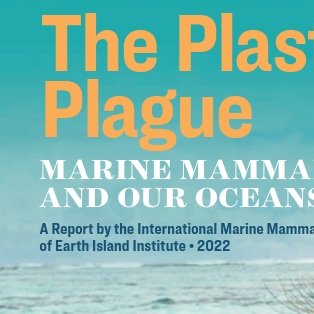
Field Measurements Reveal Exposure Risk to Microplastic Ingestion by Filter-Feeding Megafauna
Per day, a krill-obligate blue whale may ingest 10 million pieces of microplastic, while a fish-feeding humpback whale likely ingests 200,000 pieces of microplastic. For species struggling to recover from historical whaling alongside other anthropogenic pressures, our findings suggest that the cumulative impacts of multiple stressors require further attention.

Invisible, Unbreakable, Unnatural: PFAS Contamination of U.S. Surface Waters
While PFAS compounds are believed to be ubiquitous in U.S. waterways, no nationwide surface water quality survey exists. As a result, the levels and effects of PFAS are unknown for many rivers, streams, lakes, and other U.S. surface waters that serve as drinking water sources, recreational waters, and fisheries. To address this troubling lack of information about the presence of, and dangers posed by, PFAS in U.S. surface waters, Waterkeeper Alliance contracted with Cyclopure, Inc., a materials science and environmental engineering firm headquartered in Illinois, to help conduct a monitoring project in which we worked with more than 100 Waterkeeper groups across the United States on an unprecedented initiative to test U.S. surface waters for PFAS contamination.

The Plastics Plague: Marine Mammals and Our Oceans in Peril
A new report, “The Plastics Plague: Marine Mammals and Our Oceans in Peril,” explores the deadly interactions between marine mammals and plastic, from drowning in plastic nets to ingestion and nervous system damage from plastic toxins.

Microplastics Found in 100 Percent of Tested Pennsylvania waterways
At 53 waterways tested across Pennsylvania, microplastic contamination was found in every spot, from Lake Erie, Pittsburgh's Three Rivers and the Delaware River, according to a new report entitled Microplastics in Pennsylvania: a Survey of Waterways released Wednesday.

